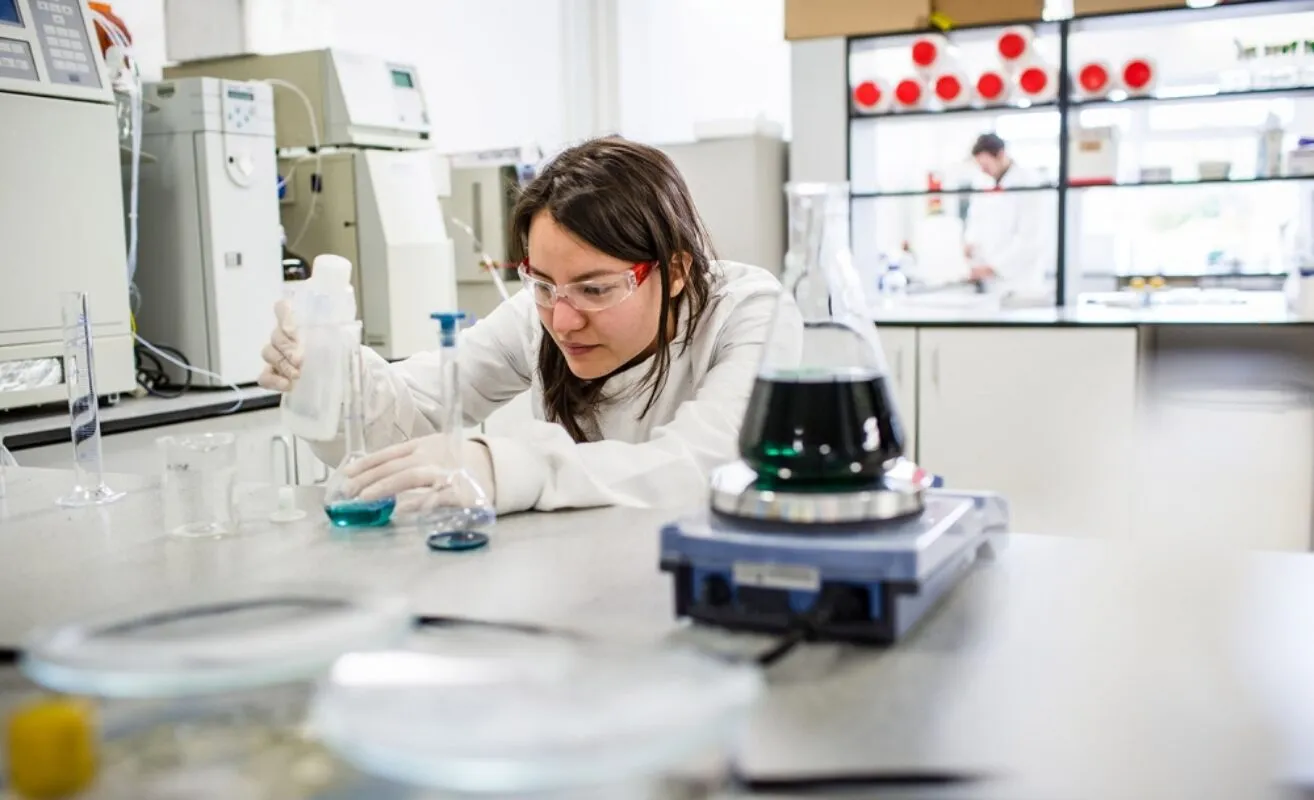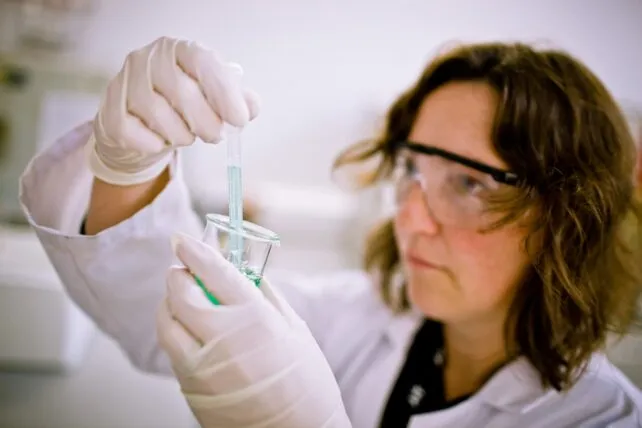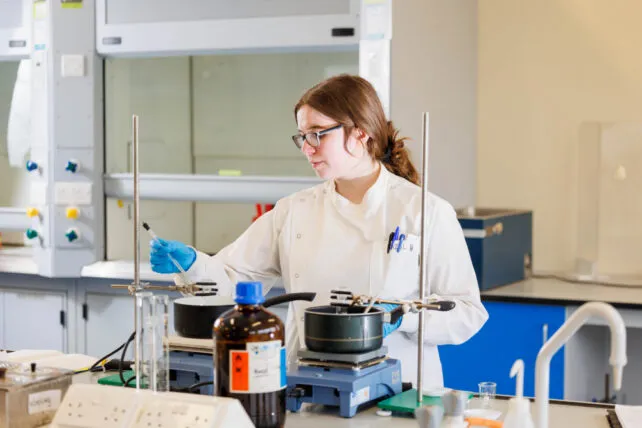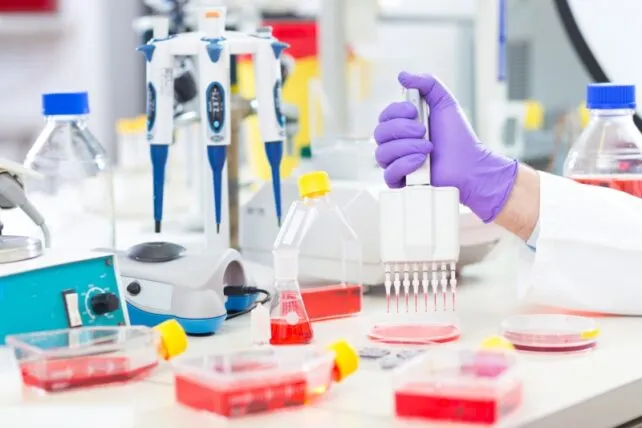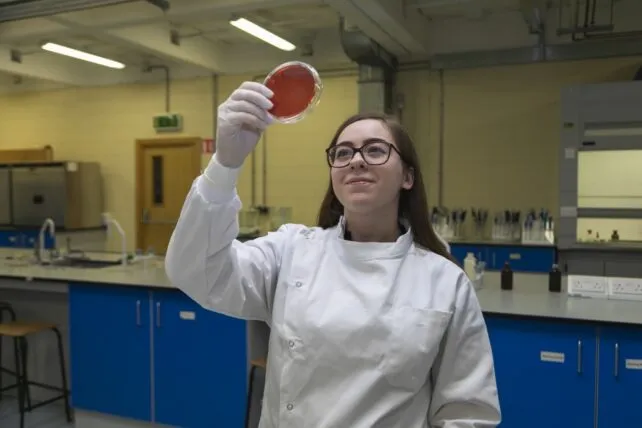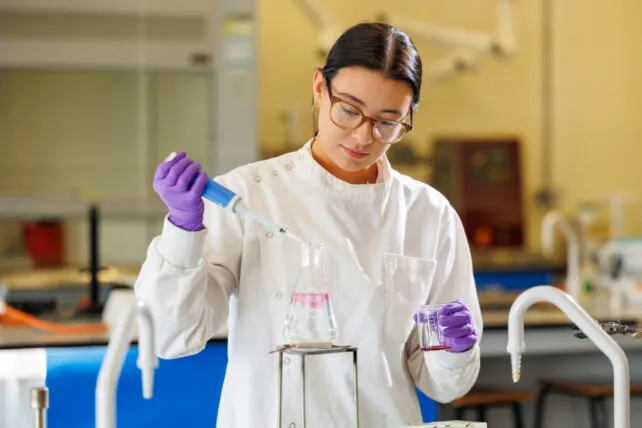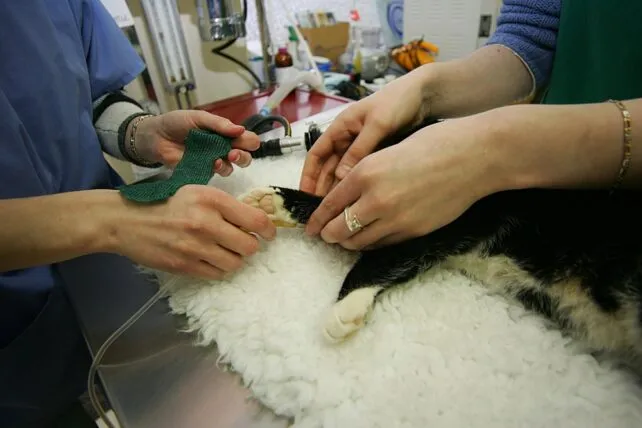Student Testimonials
“…in my opinion this course is among the top courses on offer, with thoroughly researched modules which are well taught, the information presented in lectures is very applicable to any future career a student may aspire to, and the hands on practical experience gained during the course is unparalleled in any other course.” Hilary Cassidy, PhD. Lecturer/Assistant Professor, School of Biomolecular and Biomedical Science, University College Dublin (graduated 2003).
“…the course was well structured with good labs/lectures ratio which gives you a chance to get hands on experience on theoretical part of your studies – I found this very helpful in understanding complex aspects of Biotechnology, genetic engineering, and molecular biology as well as a great opportunity to use analytical instruments. The lecturers in AIT are very helpful and approachable which makes learning easier as you’re not afraid to ask questions. After completion of undergraduate degree I was determined to continue my education at a postgraduate level and I have completed a 21 month research Master in Polymer Engineering”. Gosia Poplawska, B.Sc. Biotechnology (graduated 2013). Technical Specialist for Project Management (graduated 2013).
“Studying Biotechnology at TUS has provided me with a lifetime of opportunities ranging from career opportunities in pharmaceuticals, diagnostics, and medicine. Throughout my degree, I gained experiences that enhanced my communication skills and overall growth. From being a peer assisted student support leader, to volunteering with cell explorers, and presenting at conferences, each endeavour strengthened my foundation. Joining many groups and clubs helped me make friends and network. This degree gave me a profound understanding of regulatory guidelines, analytical techniques, and advanced chemistry/biology which served as really useful when job hunting. Proficiency in high-tech instrumentation such as HPLC, IR, PCR, and GC became second nature. The genetics/biological modules fuelled my passion for human genetics, leading me to a Masters in Genetic and Genomic Counselling at Cardiff University. With entry into my Master’s being competitive, the skills and networks I built at TUS played a pivotal role to becoming accepted. Without a doubt, I felt supported along the whole journey by the TUS faculty. If you’re passionate for science and have curiosity for things at a molecular-level, TUS’s Biotechnology program may be for you.” Kayli Sousa Smyth, BSc Biotechnology (graduated 2022); MSc. Genetic and Genomic Counselling, Cardiff University.
“As a Biotechnology graduate, I can say that this course has given me a diverse range of knowledge on various sciences, in particular the biotechnological industry which is exponentially increasing as both the present and future in science. I was sure I wanted to do science in college, but unsure what kind of science I wanted to do, so I took the leap with Biotechnology in TUS Athlone. Throughout my four years; I was exposed to hands-on analytical techniques, which are relevant for both the pharmaceutical industry and the biopharmaceutical industry, which in turn allows for a wide range of job opportunities upon completion of the course. Personally, I have gone down the route of pharmaceutical analytics, thanks to Biotechnology at TUS Athlone, from which I received a job offer two months after completing my last exam in final year. Furthermore, my job is just a short distance from TUS Athlone, which is surrounded by many great opportunities in this field. What makes Biotechnology at TUS different from similar courses in similar universities is the guarantee of first-hand experience with important techniques that are relevant when job-seeking. While Biotechnology can be intense at times, the reward at the end is worth it! The course is also more ‘tight-knit’ than most other universities, which enhances opportunity availability and also creates great friends in your chosen career path! I am delighted to be a part of Biotechnology at TUS Athlone, and I am extremely thankful that I chose this course and I acquired fantastic guidance from the Biotechnology Faculty.” Keelin Irwin, BSc. Biotechnology (graduated 2023). Assistant Scientist at ThermoFisher Scientific, Athlone.


